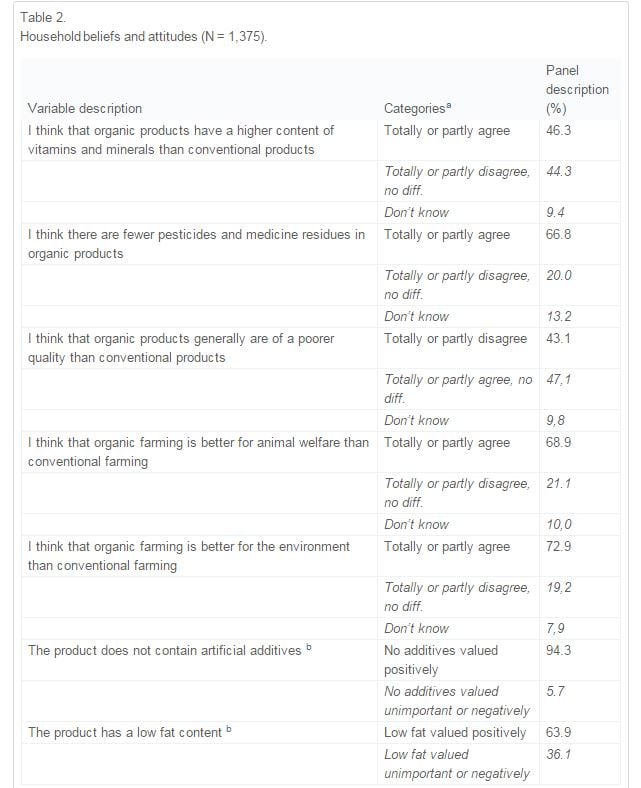The study sampled Danish households and found wealthier, better educated, urban households that consumed more fruits and vegetables and less meat and fatty-sugary foods also had higher organic food consumption. Average organic spend had increased from 5.5% to 8% between 2007 and 2014.
Personal health rather than concern for the environment or animal welfare was the primary driver even though about 70% of those polled agreed organic farming was better for the planet and the animals that live on it, found the study published online last month in the Journal of Life Sciences (NJAS – Wageningen).
Professors Sigrid Denver and Tove Christensen from the Department of Food and Resource Economics at the University of Copenhagen wrote “…we find no significant relation between stated perception of animals’ welfare and environmental benefits in organic production and purchases of organic food.”
They found higher vegetable consumption had a greater impact on organic spend than did fruit.
“The explanation may be related to earlier findings that consumers choosing to eat organic food tend to be more interested in cooking and therefore more likely to spend time preparing vegetables,” they postulated.
Nutritionally superior?
Many consumers were guided by national nutrient intake recommendations and believed organic food could help them achieve these nutritional targets and attain a healthy balanced diet.
About half of those polled believed organic foods contained more minerals and vitamins than conventional foods even if there is scant data to back this up.
Denver and Christensen clarified they did not account for differences between types of vegetables or fruits (more or less fibre for example) or meats (more or less fat).
Wealthier households tended to consume organic foods because they could afford the large price premiums common in the category.
Inter-category substitution was observed where a more price sensitive homes might “substitute organic meat or highly processed foods, which are relatively expensive, with vegetables or other unprocessed, basic products with lower prices and/or lower price premiums.”

The researchers suggested organic-leaning consumers ate few low-fat foods either because they had little interest in them, or because they were not readily available.
In calling for more research, they concluded “the average Danish diet still is too fat, too sweet, and with too low a dietary fiber content. How these developments have affected the relation between healthy eating habits and organic consumption is an interesting question.”
About 4% of agricultural land in Europe is organically managed, according to Eurostat.
Source:
Journal of Life Sciences (NJAS – Wageningen)
Available online 20 July 2015
“Organic food and health concerns: a dietary approach using observed data”
Authors: Sigrid Denver, Tove Christensen
